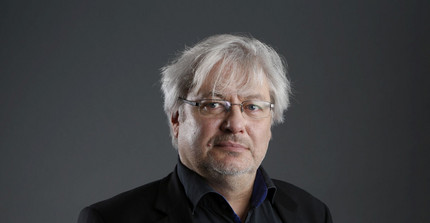Cultural Management
At first glance, the terms "culture" and "management" may seem to be in conflict with each other. While the former is often associated with free self-expression and creative endeavors, the latter is typically linked to planned processes, hierarchies, and procedures. However, whenever culture is not only self-organized in backyards and pedestrian zones, but also institutionalized and potentially financially sustainable, it must also be professionally organized. And it's exactly in this tension that cultural management comes into play.
The term refers to a broad range of activities that are involved in the realization of art and cultural projects of all kinds. Depending on the position, tasks such as fundraising and sponsorship, public relations, program and exhibition planning, evaluation and scientific accompaniment, cultural mediation and artist management, or just a part of these tasks, may fall within the responsibility of cultural managers. A significant portion of organizational tasks, such as finding suitable venues, booking hotels for artists, or organizing the transportation of artworks, also belong to their daily business. Cultural management is therefore a classic generalist activity, in which one needs to know a little bit of everything. Cultural managers serve as a link between artists and the public, shaping the framework conditions for art, but not creating it themselves. In some positions and roles, such as the intendant, there may be overlaps between management tasks and artistic realization.
Practical experience is a must, self-employment is not uncommon
To be successful in the field, one needs to have a good knowledge of the cultural industry, combined with entrepreneurial thinking. The work requires flexibility, organizational talent, and the willingness to take initiative and make decisions. Due to the international orientation of the cultural scene, foreign language skills can be an advantage, however proficient German skills are also a required in most job offers.
Although cultural management emerged as a distinct field of study in the late 1980s, it remains an interdisciplinary field and is therefore also suitable for students from other disciplines.
If one wants to specialize in a particular area of cultural management (museum pedagogy, curation, exhibition planning, etc.), it's a good idea to look for larger formats and institutions, as these often have more specialized roles. Also it is highly recommended, yet to gain targeted experience during studies to sharpen one's profile. Job seekers can find employment at cultural institutions such as museums, galleries, opera houses, film and literature festivals, theaters, etc., as well as at less conventional providers of art, such as company-owned exhibitions or the cultural promotion at a housing cooperative. Self-employment as a cultural entrepreneur is also not uncommon in the field.
When searching for a job, it's not enough to filter by the term "cultural management" respectively "Kulturmanagement". Depending on one's preferences, it's also worth searching for related German terms such as "Kulturvermittler*in, "PR-Manager*in" and "Social Media Managemer*in", "Kurator*in", "Intendant*in", "Kulturreferent*in" or "Projektmanager*inim Kulturbereich".

